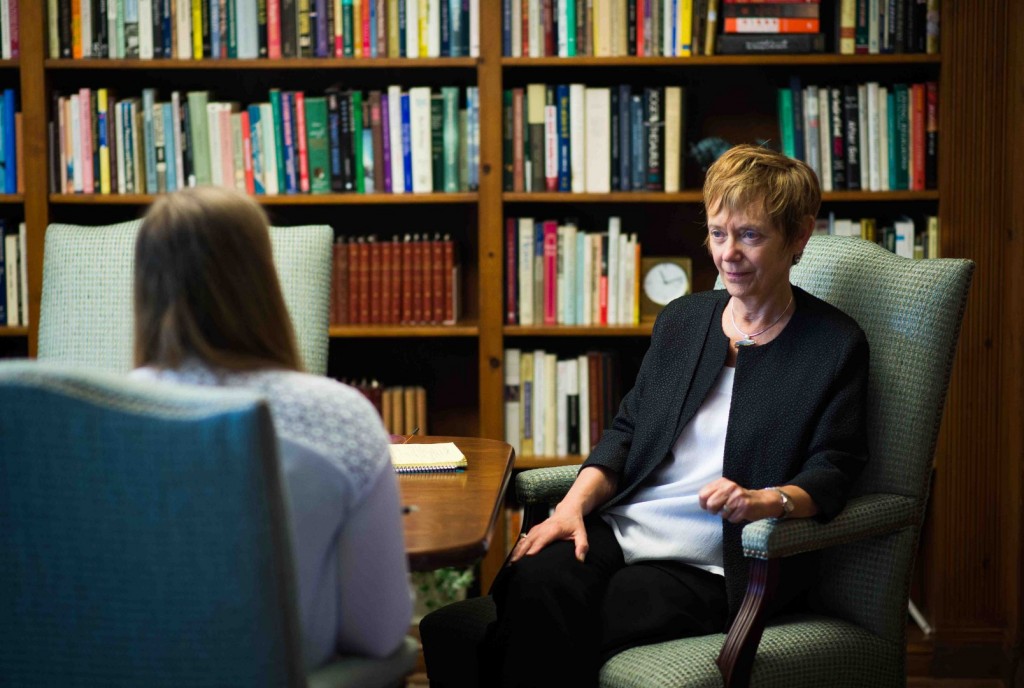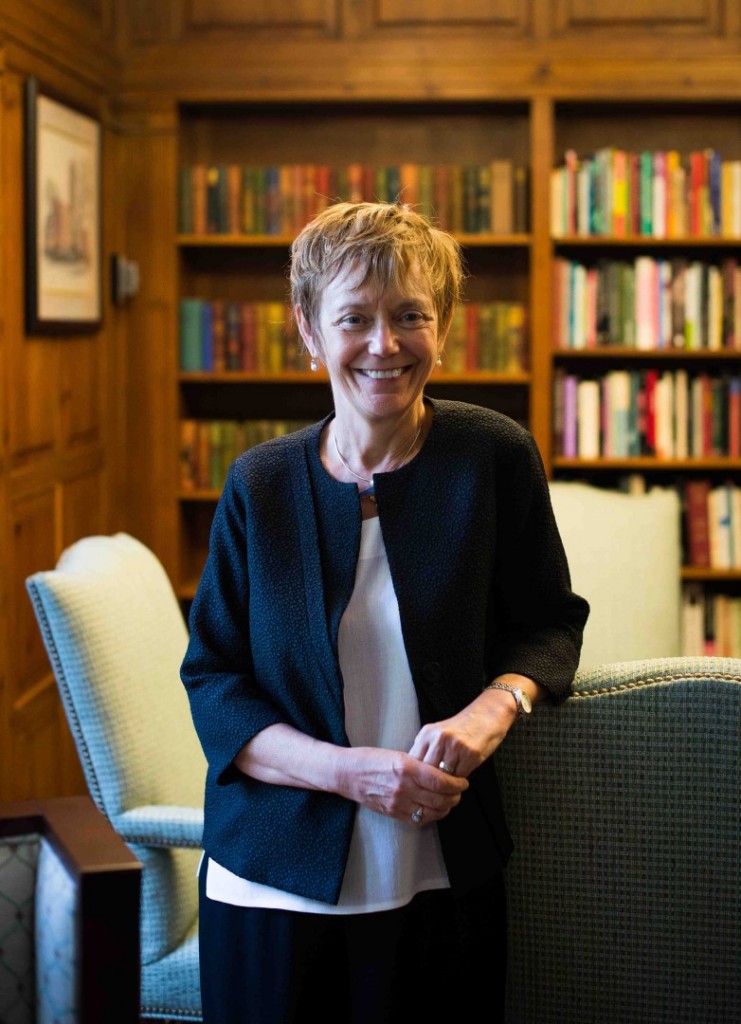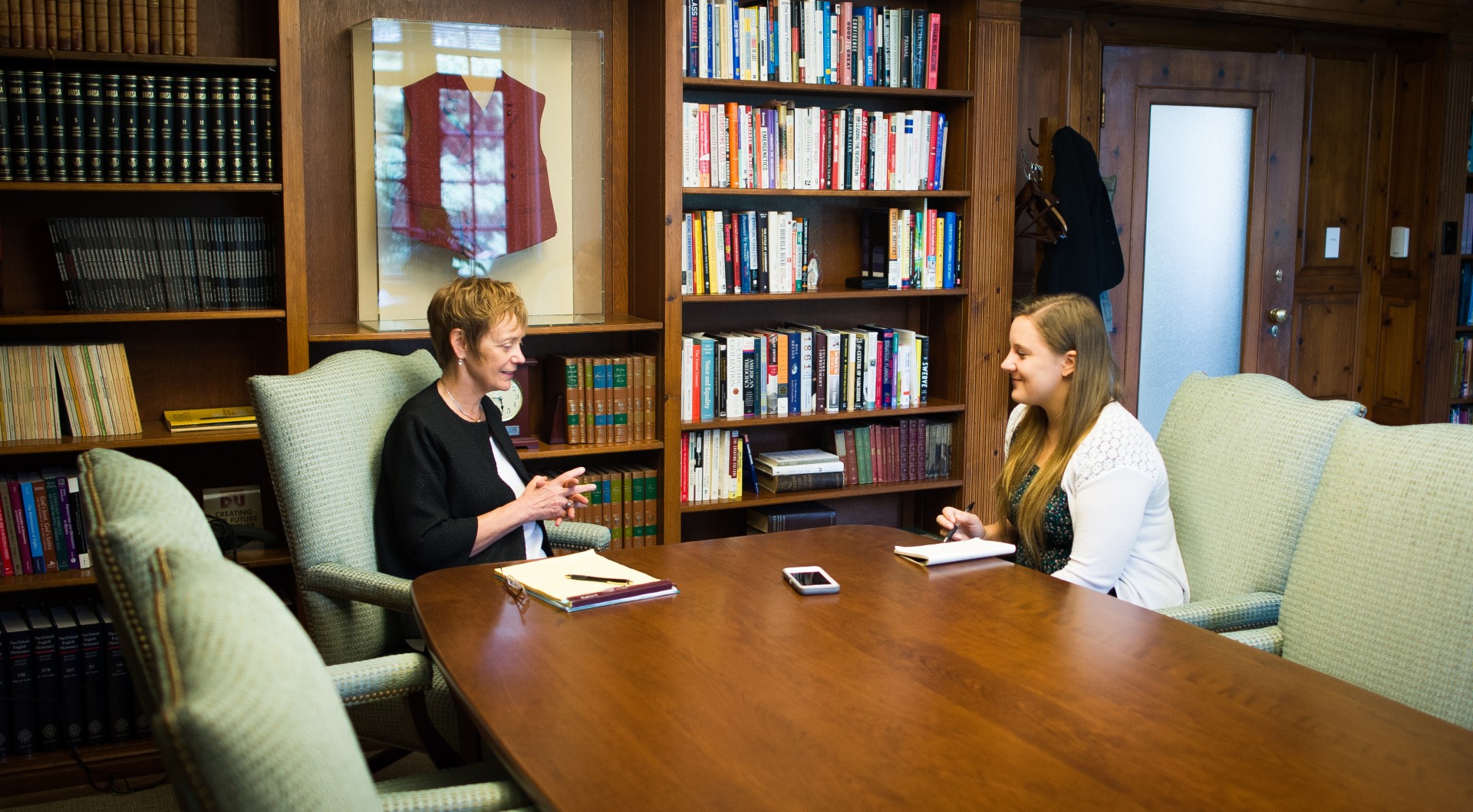On Friday, Sept. 18, Rebecca Chopp was officially inaugurated as DU’s next Chancellor. In honor of her official inauguration, the Clarion sat down with the chancellor to discuss her first year at DU, as well as her plans for the future of the university.

Q: The overarching theme for your inauguration is the impact of higher education. How was this theme chosen?
A: We were looking for a theme that brings people together, that plays on or expresses our commitment to serving the public good, that addresses the emerging sense that we need so many different types of higher education—the community colleges, the state colleges and the private colleges, too. Why not use the inauguration as a time to get everybody together? The response from the presidents and chancellors [from other institutions] was absolutely terrific. Everybody loved the idea. I think it was a topic that could lift up higher education, help people realize that we aren’t all the same but that we all share a common mission, which is to serve our society and the world.
Q: How has higher education impacted your life personally?
A: I’m the first one in my family to finish college, and it was incredibly transformative. I didn’t really ever even dream of going to college, and I got there kind of by happenstance, and it opened up all sorts of new worlds and taught me about myself. My career in higher education since then has been very diverse. I’ve been a lot of different places and worked with a lot of different students, and in some ways for me it has confirmed this transformative impact that it has on personal lives, on communities and on society at large.
I’ve learned over time that there’s almost an infinite variety of ways that students learn, what students want to do, what students are passionate about, how we need to help guide students to their future. For me, the breadth and depth of my experience has really allowed me to see that education is about creating the future. Creating the future for individuals, creating the future for communities and creating the future for society.
Q: What would you say sets DU apart as an institution of higher learning?
A: The first and most fundamental thing is the commitment to the students. As we were getting ready to begin our design process for the strategic plan, we talked to around 2500 people, and nearly every one of them says that what is distinctive about this place as a research university is this deep and abiding commitment to the students.
I think our combination of schools is also very distinctive. We’re small enough that students and faculty can work across all the professional schools and the undergraduate programs, and yet we’re large enough that we really do have a big scope. Through our strategic planning process we hope to create a sort of interstate highway system to make it easier for people to leverage all of those intellectual assets.

Q: What issues are you currently addressing on campus and what issues do you hope to address in the future?
A: We’re currently addressing the strategic planning process, which is really important because you have to think about it systemically. You have to think about the future and do studies and interviews to find out what students want, what students need, what employers need, what society needs. I know it will lead us to some pretty big, bold changes. Expanding the student experience, supporting it more. I think we’ll be more engaged with Denver so that students have more access to internships and other resources.
Meanwhile on campus, I’ve been very engaged in raising new funds for financial aid, which is a very deep commitment of mine. The school is challenging our donors, with our own resources, to commit to financial aid. I’ve also tried to be very engaged with Student Life. I’m very excited about hiring Lily Rodriguez, who is our new Vice Chancellor for Campus Life and Inclusive Excellence. There’s been a lot of interest in doing more to create one ‘DU spirit,’ so I’ve been working with the Undergraduate Student Government on some projects as well.
Since I’ve been here, we’ve also been very focused on issues of sexual assault and sexual violence. That is an issue that is very important to me, and we’ve hired a full-time Title IX coordinator, expanded our resources in terms of investigators and, I would say thanks to the students, led a pretty major revamp.
Q: If you had to pinpoint one issue or topic that most needs to be addressed at DU, what would it be?
A: One is very much financial aid. The second is that I want students to belong to DU. I want them to be so engaged that when they’re alumni, they can’t wait to get back and offer internships and mentor students. We’ve got a good base for that but I think there’s so much more that we will do and it will make a better experience for our students, but equally as important, it will ease their transition into the career world.
Q: If there’s one thing you want students to know about you and what you’re doing at DU, what would it be?
A: The one thing I would want them to know is that I’m very student-focused. I’m going to get in a golf cart and go out on campus as I did last year and ask people questions. I really do believe we are here to support and challenge our students. I really do believe the future rests with our students. I am always going to be asking everybody, how will this impact our students?











